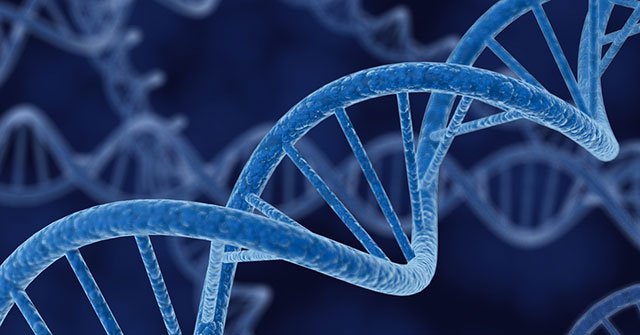DNA information leaks are worse than leaking many credit card information
The new DNA test MyHeritage recently revealed hackers have infiltrated their 92 million accounts. Although email and password can only be obtained - not genetic data - but there is no doubt that this type of hack will happen more often when people regularly perform DNA testing. So what do hackers want to get DNA information for? And what will DNA data leak?
Computer science professor at Santa Barbara University and co-founder of network security company Giovanni Vigna said one simple reason is to take DNA data to extort money. Hackers can scare information online, a hotel in India has paid $ 55,000 for this reason.
There are other reasons that genetic data is very attractive to hackers. 'This data can be sold on the black market or for insurance companies,' Vigna added. 'Imagine one day I want to borrow a long term but get rejected because I have information that I can get Alzheimer's and will die before I can repay the loan.'
MyHeritage does not perform medical / health tests, but many companies like 23andMe and Helix do. Subjects interested in DNA are also diverse: genetic researchers, insurance companies want to calculate health costs and life insurance, police want to follow criminals.
Currently, the ability to protect gene data is still low, so if leaked, it will really be a nightmare. 'If there's data, there's a way to exploit it,' says Natalie Ram, a professor of law at bioethics at the University of Baltimore.
Genetic testing sites are treasures, a rich source of information. Some pages also give users full genome download. However, the full genome is not the most valuable information. As Ram points out, we cannot read the whole thing but often the account with health analysis information is more useful.

Human gene data when leaked can have a big impact
That kind of data is very valuable to insurance companies, employers, police. In the world where everything is posted online, it is very easy to use genes to classify, such as denying loans or increasing insurance prices . In the future, if gene data is increasingly popular, people can pay to read someone's genetic data like we read a person's criminal record now. Of course the police or companies will not want to work with hackers but it is unclear where the data comes from, there is always a black market to buy and sell this information.
Another problem is the ability of wrong tests and testers to produce fake results. Even blood tests are sometimes wrong. Tests of 23andMe are FDA approved but there are many other facilities that work freely. Suppose you received a false report, not many people were able to read, understand and correct.
The Equifax hack last year showed loose sanctions when data leaks. Genetic data leakage is more important than many credit cards. You can change card numbers, addresses and other information, but not genes. Genetic information is also often shared voluntarily. 'For example, if I do not use 23andMe, but my brother uses it, it is possible that my gene is also searchable'.
Ram said that it is necessary to consider for genetic testing companies to protect customer information and avoid data leakage. Currently, the patient's genetic test results are not protected under HIPAA (Health Insurance Accountability and Liability Act).
See more:
- A total of more than 100 human memory-related genes have been identified
- Americans are more afraid of being hacked than afraid of being killed
- Hackers demand $ 50K from the hacker forum, otherwise they will give no Fed
You should read it
- ★ 10 biggest data leaks in the world in 2018
- ★ Find the gene that is still active after our bodies die
- ★ Discovering more vulnerabilities makes Bluetooth devices vulnerable to malicious attacks
- ★ This ransomware strain is specifically aimed at 'dirty' material of companies
- ★ Another major health facility was attacked, affecting nearly half of the Canadian population